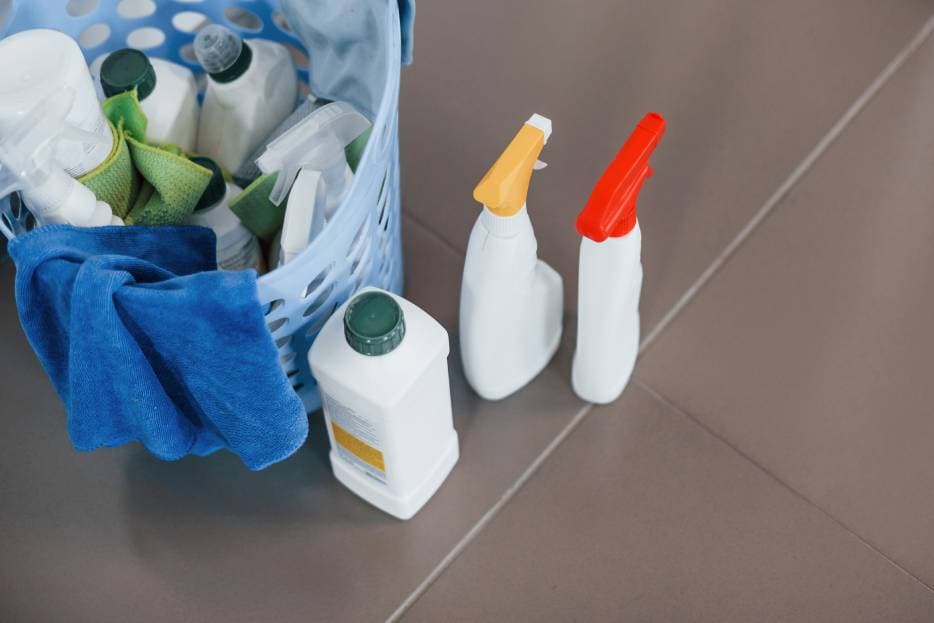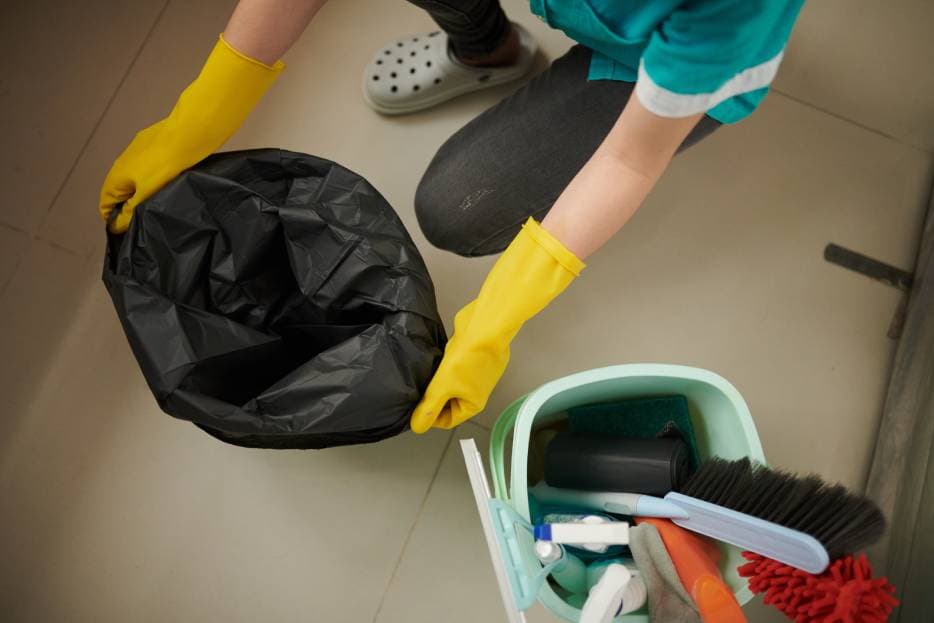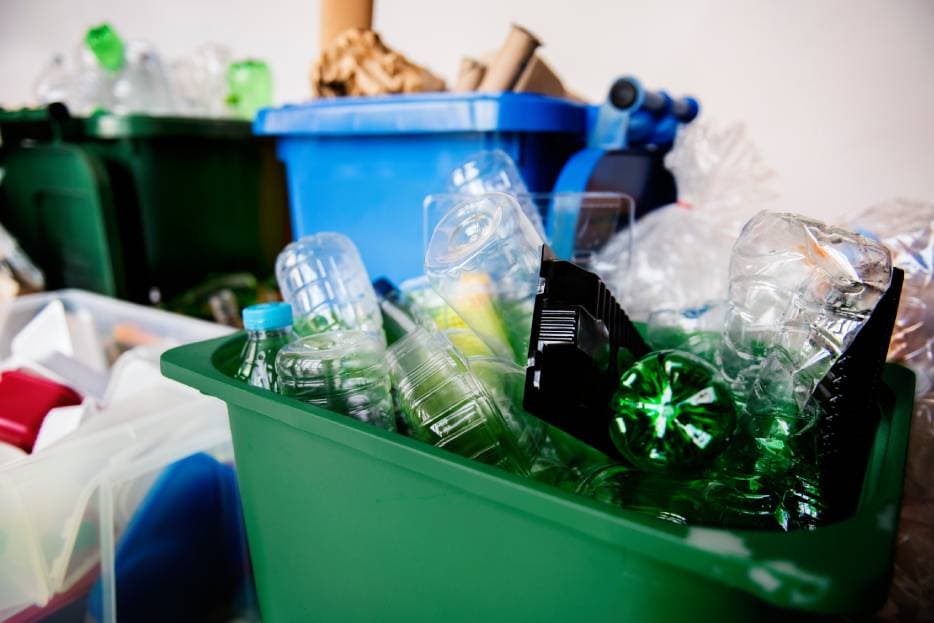Cleaning services in CDMX are a fundamental pillar for maintaining healthy, safe, and attractive spaces—whether in offices, industrial sites, or commercial premises. However, this activity also generates a considerable amount of waste, ranging from empty chemical containers to disposable materials.
If not properly managed, this waste can significantly contribute to environmental pollution and increase the ecological footprint of businesses.
This article aims to present practical and effective strategies for reducing waste generation in professional cleaning, promoting a more eco-conscious and sustainable approach.
These practices can also complement other environmental maintenance and control measures, such as those discussed in our previous article on how to prevent pests in businesses, where the importance of cleanliness and order in avoiding infestations and reducing risks was emphasized.
How to Reduce Waste with Professional Cleaning Services
Implementing sustainable practices in professional cleaning is both possible and, often, simple. Below are key strategies to help reduce waste generation without compromising service quality:
1.- Use of Concentrated and Biodegradable Products
Opting for concentrated cleaning products reduces the number of containers used, as a single bottle can be used for multiple applications. These products also require less storage and transport space, lowering the carbon footprint.
Choosing biodegradable formulas ensures that chemical residues have less environmental impact, as they degrade more quickly and do not pollute soil or water.

2.- Smart Dosing of Chemical Products
Product waste is common when quantities aren't properly controlled. In our cleaning services in Guadalajara, we implement controlled dosing systems that ensure only the necessary amount is used for each task, avoiding excess that generates more waste and could harm surfaces or personnel health.
3.- Replace Disposables with Reusables
Many traditional cleaning materials are disposable, such as paper towels, mop heads, and single-use gloves. Replacing them with reusable alternatives like washable microfiber cloths or durable gloves can significantly reduce generated waste.
4.- Proper Waste Management and Separation
It's not enough to reduce waste; proper classification and disposal are also vital. Separating recyclable containers, organic waste, and hazardous materials allows for appropriate reuse or treatment. This prevents garbage from ending up in landfills or polluting the environment, and facilitates recycling efforts.
5.- Continuous Staff Training
Cleaning personnel are the engine behind sustainable practices. Therefore, it's essential to train them on efficient product use, the importance of waste reduction, and proper waste segregation.
Ongoing training fosters environmental responsibility and improves work quality.

6.- Adoption of Eco-Friendly Technologies
Cleaning technologies using steam, ozone, or ionized water are increasingly accessible and effective. These options reduce or eliminate the need for chemicals, lowering hazardous waste and enhancing safety for workers and users.
7.- Reduction of Water Usage
Water is a vital resource, and overuse leads to large volumes of contaminated wastewater. Using equipment that optimizes water consumption—such as scrubbers with recirculation systems—and applying cleaning methods that require less water contribute to more sustainable management.
Reducing waste in professional cleaning is not only a responsible environmental action but also an opportunity to improve processes, optimize resources, and strengthen a company’s sustainability commitment.
From using concentrated products to adopting eco-friendly technologies, every step helps build a more efficient and environmentally respectful operation.
Benefits of Reducing Waste in Cleaning
Adopting waste reduction strategies in professional cleaning brings multiple benefits beyond environmental care. Below are the main advantages:
1.- Enhanced Corporate Image
Companies that implement sustainable practices are increasingly valued by customers, employees, and partners. Showing environmental commitment enhances reputation and can be a deciding factor in securing contracts or retaining clients.
2.- Operational Cost Savings
Another benefit is the reduced use of products. Minimizing disposable materials and optimizing resources like water and energy can lead to significant savings.
For example, in our cleaning services in Monterrey, we use concentrated products and smart dispensers, which reduce supply needs and lower costs in the medium and long term.
3.- Compliance with Environmental Regulations
More countries and regions are requiring businesses to follow specific rules for waste and chemical management. Taking proactive steps ensures legal compliance and helps avoid fines or sanctions.
4.- Contributions to Global Sustainability
The cleaning industry plays a major role in waste generation and resource consumption. By reducing these impacts, companies help mitigate global issues such as soil and water pollution, greenhouse gas emissions, and biodiversity loss.
At Quick Shine, we believe that the future of professional cleaning must be impeccable, conscious, and committed. Want more tips on sustainability, innovation, and best practices in cleaning? Keep reading our blog and be part of the shift toward smarter, greener hygiene.
